THE
FARMERS GAME
THE
FARMERS GAME
 Baseball in Rural America
Baseball in Rural America
DAVID VAUGHT

2013 The Johns Hopkins University Press
All rights reserved. Published 2013
Printed in the United States of America on acid-free paper
2 4 6 8 9 7 5 3 1
The Johns Hopkins University Press
2715 North Charles Street
Baltimore, Maryland 21218-4363
www.press.jhu.edu
Library of Congress Cataloging-in-Publication Data
Vaught, David, 1958
The farmers game: baseball in rural America / David Vaught.
p. cm.
Includes bibliographical references and index.
ISBN 978-1-4214-0755-5 (hdbk.: alk. paper)ISBN 978-1-4214
0833-0 (electronic)ISBN 1-4214-0755-8 (hdbk.: alk. paper)
ISBN 1-4214-0833-3 (electronic)
1. BaseballUnited StatesHistory. 2. BaseballUnited States
Social aspects. 3. Country lifeUnited StatesHistory. 4. Farm
lifeUnited StatesHistory. 5. United StatesRural conditions.
I. Title.
GV863.A1V38 2013
796.357--dc23 2012017647
A catalog record for this book is available from the British Library.
Special discounts are available for bulk purchases of this book.
For more information, please contact Special Sales at 410-516-6936
or specialsales@press.jhu.edu.
The Johns Hopkins University Press uses environmentally friendly book materials, including recycled text paper that is composed of at least 30 percent post-consumer waste, whenever possible.
For R. J. Q. Adams
CONTENTS
INTRODUCTION
Abner Doubleday and Baseballs Idol of Origins
CHAPTER 1
Playing Ball in Cooperstown in the Formative Years of the American Republic
CHAPTER 2
Baseball and the Transformation of Rural California
CHAPTER 3
Multicultural Ball in the Heyday of Texas Cotton Agriculture
CHAPTER 4
The Making of Bob Feller and the Modern American Farmer
CHAPTER 5
The Milroy Yankees and the Decline of Southwest Minnesota
CHAPTER 6
Gaylord Perry, the Spitter, and Farm Life in Eastern North Carolina
EPILOGUE
Vintage Ball
ACKNOWLEDGMENTS
With great pleasure, I express my gratitude to the following individuals and institutions:
My thanks begin with those who made the research possible. I extend my deepest appreciation to the staffs of the A. Bartlett Giamatti Research Center, National Baseball Hall of Fame and Museum, Cooperstown; Division of Rare Manuscript Collections, Carl A. Kroch Library, Cornell University; Dixon (California) Public Library; Fayette Heritage Museum and Archives, La Grange, Texas; Briscoe Center for American History, University of Texas at Austin; Institute of Texan Cultures, University of Texas at San Antonio; Roy R. Estle Memorial Library, Dallas Center, Iowa; State Historical Society of Iowa Library and Archives, Des Moines and Iowa City branches; Dallas County Archives, Adel, Iowa; Bob Feller Museum, Van Meter, Iowa; Van Meter Public Library; Minnesota Historical Society, St. Paul; North Carolina Collection, Wilson Library, University of North Carolina at Chapel Hill; North Carolina Collection, Joyner Library, East Carolina University, Greenville; Francis Manning Room, Martin Community College Library, Williamston, North Carolina; Martin Memorial Library, Williamston.
Special thanks go to Wayne Wright, New York State Historical Association, Cooperstown; Joe Amato, Jan Louwagie, and C. J. Molitor, Southwest Minnesota Regional Research Center, Southwest Minnesota State University; and Elinor Maz, Baylor University Institute for Oral History. At Texas A&M University, generous and greatly appreciated financial support from the Melbern G. Glass-cock Professorship in Undergraduate Teaching Excellence, Program to Enhance Scholarly and Creative Activities, and Department of History paid for much of my travel and research expenses.
Many others graciously offered assistance as well. Tom Heitz shared his knowledge of Cooperstown history and gave me an insiders tour of the village. Joanne Doherty of the Burton (Texas) Cotton Gin Museum answered many of my questions on local history or found someone else in town who could. Barbara Judkins, from the Farmers Branch Mustangs, introduced me to vintage base ball in central Texas. Several generous colleagues read portions of the manuscript and offered criticism, support, and valuable insights: Dale Baum, Joe Bax, Walter Buenger, Doug Helms, Doug Hurt, Walter Kamphoefner, Brian Linn, Bill Page, Don Pisani, Adam Seipp, Leslie Seipp, Rebecca Sharpless, Ethel Vaught, and Melissa Walker. Harold Livesay shared my enthusiasm for baseball history, read chapter drafts and the entire manuscript with a keen editorial eye, and helped me sharpen my arguments. And many thanks, as always, go to Robert J. Brugger at the Johns Hopkins University Press. He remains the consummate editor.
Like many academics before me who dared to combine their passion for history with their passion for baseball, I am deeply indebted to Jules Tygiel, whose death a few years ago took from the historical profession one of its ablest practitioners. Unlike many others, I remain inspired not just by his pioneering books and articles on Jackie Robinson, race, and baseball history but by his teaching and mentoring as well. While an undergraduate at San Francisco State University in the mid 1980s, I benefited enormously from several of his stimulating and rigorous classes in American history and from his advice, insight, and encouragement in long conversations in his office. I still think of him not as a baseball historian but as my history professor. Jules was a true scholarwise, generous, and kind. He is missed very much.
While conducting research for this book, I published three articles as a means to introduce key themes and work on specific problems. An earlier version of was published as From Tobacco Patch to Pitchers Mound: Gaylord Perry, the Spitter, and Farm Life in Eastern North Carolina, Journal of Southern History 77 (Nov. 2011): 865894, and I thank the editors for permission to include this material. I also wish to thank the Agricultural History Society for granting permission to use material that appeared previously in my article Abner Doubleday, Marc Bloch, and the Cultural Significance of Baseball in Rural America, Agricultural History 85 (Winter 2011): 120. I am grateful to the History Department at the University of Texas at Arlington for permission to publish a revised version of my essay Our Players are Mostly Farmers: Baseball in Rural California, 18501890, in Baseball in America and America in Baseball (Walter Prescott Webb Memorial Lecture Series no. 38), ed. Donald G. Kyle and Robert B. Fairbanks (College Station: Texas A&M University Press, 2008), 831.
My family continues to sustain me through good times and bad. Whats new and exciting in the world of history? my wife, Ethel, asks me most every day at dinnertime. Sometimes she gets more than she bargained for, but she continues to ask anyway. Diana, my daughter, pretends to listen (sometimes), even while deeply engrossed in Harry Potter. I would not have it any other way. They give my life perspective and joy, as does my mother, Marilyn, who I am delighted to report has become a baseball fan of late, much to my utter astonishment.
Next page

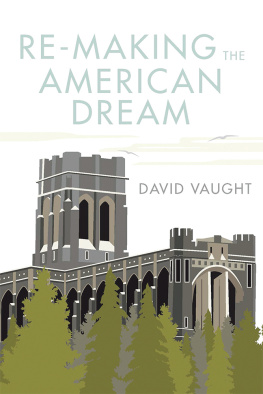
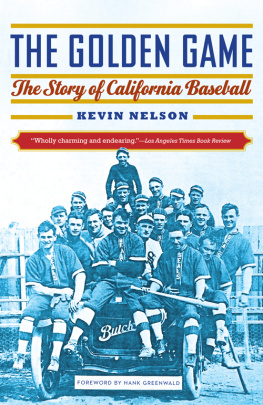
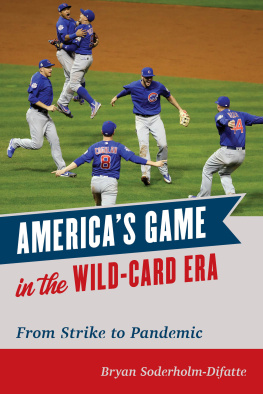

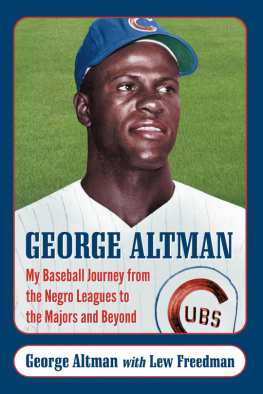
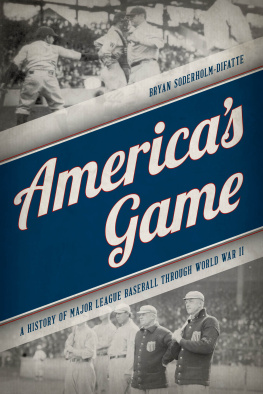
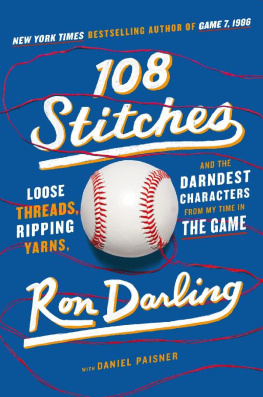
 Baseball in Rural America
Baseball in Rural America
